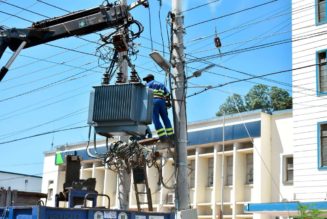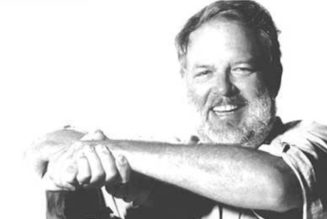
Although iHeart and Entercom oversee their in-house voice-tracking networks from their home bases in San Antonio and Philadelphia, smaller radio companies rely on talent agencies such as Skid Trax, a 10-year-old service that links stations with veteran DJs such as Marisay and Ashley & Brad, the morning-show duo for Simi Valley, California, country station KWSV. And lately business is booming: Between 2018 and 2019, Skid Trax increased the number of stations it works with by 7%; between 2019 and 2020, the increase was 43%. Skid Trax personalities have been “getting more and more calls,” says Tonya Campos, a former program director who co-founded the company 10 years ago, and co-founder Michael Raffety adds: “For the local talent, it’s sad. For a show like Ashley & Brad, like it or not, it’s been beneficial.”
Voice-tracking — a way of automating a radio broadcast so a remote DJ can record song intros and deliver snappy banter about the weather and local sports and news — is not nearly as lucrative as being a full-time DJ at a radio chain. Stations’ monthly rates are roughly between $400 (for 30 to 45 minutes of recording time that adds up to an hour or two on the air) and $2,500 (for live shifts of up to six hours every day). But voice-trackers usually have to record just on-air dialogue, and stations plug in songs and commercials later on, so the process takes less time. Reputable freelancers like Marisay stack up regular gigs with multiple stations.
When Temple Hancock was a morning-show producer and on-air talent at Nashville rock station WNRQ, she voice-tracked on the side, making an extra $500 a month for two weekend shifts (which took 20 to 30 minutes each to record four or five hours of airtime) on a Memphis station, adding to her $6,000 monthly iHeart annual salary. Since she was let go in iHeartMedia’s November layoffs (which the company called part of its “modernization initiatives”) and replaced with a voice-tracker, Hancock is contemplating voice-tracking full time. “This was inevitable anyway,” she says. “The pandemic just put it into more of a hyper-speed.”
Before Clear Channel transformed into iHeart in 2014, the radio conglomerate became infamous for cutting local talent and relying on centrally syndicated broadcasts by Ryan Seacrest and Rush Limbaugh as well as voice-tracking. The company’s “monopolistic practices are accelerating the homogenization of our airwaves,” social-justice activist Jeff Perlstein wrote in 2002. Today, just about every broadcaster uses some form of voice-tracking, even smaller ones emphasizing live and local.
At Entercom, the second-biggest radio company after iHeart, stations grab on-air talent from other cities, hire retired DJs and occasionally use independent contractors for voice-tracking. For example, in September, Sean “Coop” Tabler, morning-show host on Entercom’s Philadelphia hit station WTDY, expanded his job to voice-track content to other Entercom-owned stations in Detroit and Pittsburgh, cities where he previously worked. The company has increased voice-tracking during the pandemic: “Talent that never would have considered doing voice-tracking [and] never would have done a show outside the live environment, suddenly, over the past nine months, have become experts,” says Jeff Sottolano, executive vp of programming at Entercom, which initiated widespread layoffs in 2020.
“We try to have solid morning and afternoon shows that are live talents — when we can. But we supplement it with voice-tracking,” adds Mark Elliott, group program director for Denver-based Cherry Creek Media, which has 43 stations in nine cities and uses voice-tracking (including DJs they hire from Skid Trax) on 42 percent of its stations. “We might need somebody that’s specific for country that we don’t have in-house.”
Radio’s recent emphasis on more centralized and syndicated content, including voice-trackers who work for multiple stations, is not just a pandemic phenomenon. IHeart ramped up its move towards centralizing its on-air content with layoffs in January, before COVID-19 kicked in, and a company spokesperson said after the November cuts, “Listeners care about what our personalities are saying, not where they’re sitting.” Lance Venta, owner and publisher of Radio Insight, calls voice-tracking “part of the bigger picture of iHeart.” The 850-station company’s voice-tracking tech has shifted from what Venta calls “a DJ and a console” to a more cloud-based system. (Reps for iHeart wouldn’t comment for this story.)
Some broadcasters see opportunity in the cuts this year. Although Townsquare Media laid off 65 employees last March, including 26 from its corporate office, and the company employs voice-tracking in a minimal way, exporting content for weekend and overnight time slots, the broadcasting company’s strategy is to focus on local markets and recently hired a laid-off iHeart talent, Mike Rivera of El Paso, Texas, to work at one of its stations in Amarillo. Its stations may be able to compete more aggressively with live talent in markets where iHeart and Entercom have cut popular on-air personalities. “We have a strategy called local first: How is this going to impact our local markets, our local communities, our local teams and our local clients?” says Bill Wilson, the company’s CEO. “Even when it’s a great piece of content from a syndicator, it doesn’t meet the need. It’s not the right decision.”
Early in quarantine last March, stations’ budget cuts affected voice-trackers in addition to full-time employees — Marisay’s jobs dipped for a couple of months, but by summer they returned to at least 100%. “Usually, the radio station has to trim their budget, so they let go whomever they decide, and go jockless for a while,” she says, using radio slang for on-air disc jockeys. “Then they’ll go, ‘We have to do something here. It didn’t really work. Can we try you?'”









